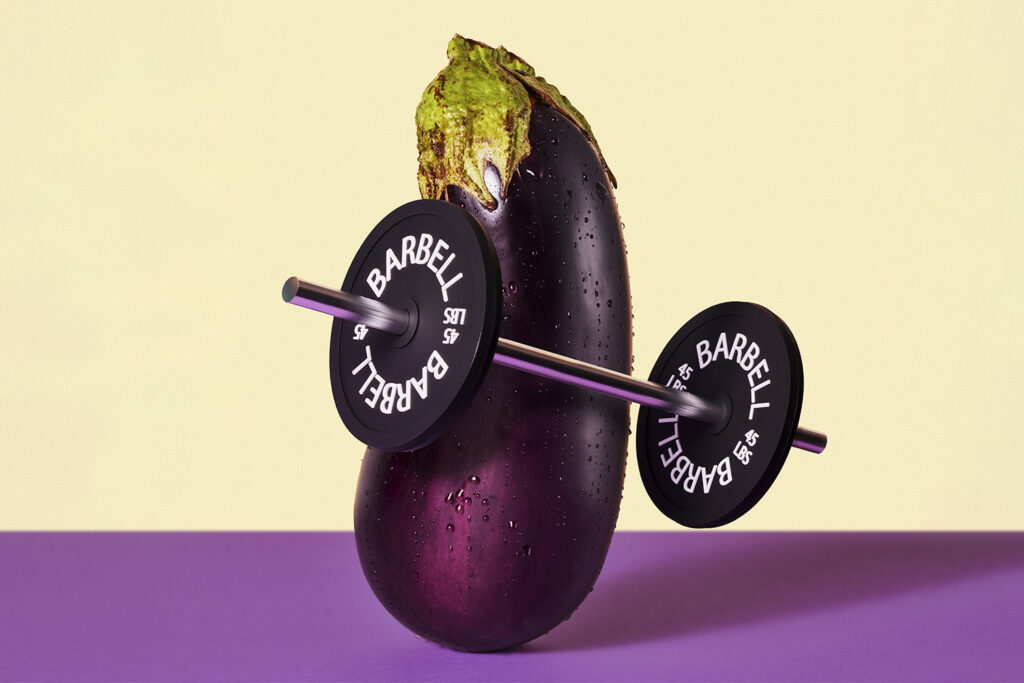Outside of death, not much worries men more than not being able to get it up. But with erectile dysfunction (ED) being more common than most of us think, there’s a bunch of help available to get you back in tip-top shape (or at least starting to figure out what’s stopping you from reaching your peak).
And while failing in the hard-on department is a significant blow to both you and your partner’s sex life, it can also trigger loss of confidence, anger, anxiety and shame. One of the reasons we let it stifle our self-esteem and sex life is that we don’t know much about it—and how it can be prevented and solved.
Thankfully, that’s where men’s health platform Mosh comes in: the online service caters to men suffering with erectile dysfunction (as well as a bunch of other men’s health issues) by offering discreet, online consultations with medical experts and delivering affordable, clinical treatment to your door. Led by Urologic and Prosthetic Surgeon Dr. Christopher Love, all the doctors on the platform are 100% independent – meaning that your doctor has no incentive to pressure you into an expensive or unnecessary treatment plan.
“Depending on the cause of the erectile dysfunction, things may not always be able to be returned to normal, but there are always ways of helping, or restoring, the man’s erections,” explains Dr. Christopher Love. “At the outset I want men to know why they have ED and how that might be related to their general health, both physical and mental health, but also to understand there are a range of treatment options.”
To get to the tip of it, we asked Dr. Love some of your most-googled questions. (And if you’re wondering if we were planning on stopping those puns, we’re definitely going to keep it up. You’re welcome.)
What is erectile dysfunction?
Basically, erectile dysfunction is the inability to get or keep an erection firm enough for sexual activity with penetration. Having erectile dysfunction can mean anything from not being able to get an erection at all, to getting one but not being able to remain rigid enough for intercourse.
What is the main cause of erectile dysfunction?
There are many causes of ED, with the main one being a problem with blood flow in the penis – this occurs commonly due to ageing, which causes the smooth muscle cells that line the blood vessels to become stiffer and less able to stretch (preventing the flow of blood), but there are other things that increase the risk of blood flow problems also.
It is common for a man with ED to have a combination of both physical and psychological causes. Some other conditions that can cause ED are:
- Blood vessel and heart conditions: Vascular disease can affect blood flow everywhere in the body but very commonly affects blood flow to the penis.
- Nerve damage: Men with conditions that cause nerve damage, such as multiple sclerosis (MS), Alzheimer’s disease, Parkinson’s disease and spinal cord injuries, may often experience ED. It’s because there is an interruption in the transmission of nerve impulses between the brain and the penis.
- Hormonal problems: ED can be caused by things like too little production of testosterone by the testicles, increased prolactin, steroid use and too much of other hormones like cortisone, thyroid hormone and growth hormone
- Obesity: Obesity is linked to heart disease, diabetes, high cholesterol and atherosclerosis – which are all closely linked to ED
- Penile Abnormalities: Peyronie’s disease, a condition can develop after “trauma” to the penis, causes a significant bend or pain in some men, both of which can result in trouble having sex
- Stress and anxiety: Physiologically, the stress hormones cortisol and adrenaline suppress production of the sex hormones making it more difficult to get or sustain an erection and can reduce blood flow in arteries throughout the body. Stress and anxiety can also interrupt how your brain sends messages to the penis to allow extra blood flow.
- Depression and low self-esteem: Research published in the Journal of Sexual Medicine showed that the risk of ED increases by 39% in patients with depression, and that the incidence of ED is 1.39 times higher in patients with depression than in those without depression.
- Sexual attitudes and upbringing: Men raised in some cultural environments often associate sex and masturbation with shame and may experience sexual dysfunction, such as premature ejaculation and ED.
- Some medications: Some medications can cause ED or worsen the symptoms of ED. The common culprits include drugs used to treat things like high blood pressure, high cholesterol and depression.
- Porn: Whilst watching porn might seem harmless, evidence increasingly suggests that watching too much porn can cause problems with sexual performance, such as ED.
Do foods, drugs and alcohol have an impact?
Yes, in the sense that an unhealthy diet is linked to obesity, heart disease, diabetes, high cholesterol and atherosclerosis – which are all closely linked to ED.
Recreational drugs, such as cocaine, MDMA and Marijuana can all impact you sexually: Cocaine and MDMA cause blood vessels to constrict, decreasing blood flow to the penis, while marijuana interferes with erections by preventing the smooth muscle in your penis from relaxing to let enough blood flow in.
As for alcohol, it affects sexual function in several ways. Firstly, alcohol dehydrates, taking away the blood and oxygen flow needed to bring greater sensation to the genitals. Secondly, it lowers testosterone levels, which means it’s hard to get in the mood for sex. Lastly, it’s a nervous system depressant, which means circulation and nerve ending sensitivity are all suppressed, making it harder to get an erection.
What’s the average age for erectile dysfunction?
While ED becomes more common as men age, with approximately 40% of men being affected at age 40 and nearly 70% of men being affected at age 70, complaints of ED in younger men is on the rise, with one in four new ED patients now under 40.
The ageing of the penis can begin as early as the late 20s but becomes severe enough to notice typically starting in the 40s. As men get older, their chances of getting erectile dysfunction increase by about 10% per decade, and the severity of the problem also increases.
Can I prevent it?
For most men, preventing and improving erectile dysfunction means improving blood flow to the penis – and the best way to do this is with proper diet and regular exercise.
- Exercise: Exercise stimulates the release of hormones and boosts libido. It also stimulates the growth of blood vessels and increases blood flow, which naturally leads to enhanced blood flow to the penis.
- Diet: When it comes to food, studies show that men who eat a traditional Mediterranean diet have a lower risk of ED. That means eating lots of vegetables, fruits, whole grains, nuts, fibres, fish, virgin olive oil and having a moderate wine intake.
Other strategies that help: Kegel exercises have been shown to help keep the penis properly pumped, and sleep boosts testosterone and lowers adrenaline. Finally, tune out the pornography.
Overexposure to pornography interferes with key brain centres that trigger desire, erections, and climax.
Is erectile dysfunction curable completely?
For most men, erectile dysfunction can be effectively treated, although not truly cured. Typically medications are required and in some cases men may need surgery. Understanding what’s causing your ED, however, is the first step to treating it.
What are the treatment options?
There are a host of clinically-proven oral medications to treat ED that are effective in most men, however finding the right fit is a whole different ball game.
At Mosh, the platform’s doctors and nurses can evaluate your situation and treatment program without meeting in-person – they do this by asking questions to evaluate your symptoms to make sure it’s safe and appropriate to prescribe ED medication. They’ll then use your answers to diagnose your condition and create a bespoke treatment plan just for you.
Once you’ve been given the best treatment option, Mosh‘s subscription-based service means you will get a new set of medications delivered every 3 months from registered Australian pharmacies. The plan includes nurse follow-ups, educational support material, and ongoing medical support, including recommendations/referrals to other specialists, at no extra cost.
“Online platforms like Mosh offer a wonderful opportunity to bring quality medical care to a broader section of the population, particularly in “difficult” or “embarrassing” areas like ED, explains Dr. Love. “This form of medical consultation and treatment will grow and expand, and, I believe, become a very viable alternative to the traditional medical consultation. It was important to me that, using Mosh, patients were getting the right and most up-to-date advice, and being educated about all the choices available to them. In the area of ED there has been a tendency, in traditional GP consultations, to not really discuss things, or understand the individuals needs and expectations, and offer erection pills without outlining treatment options if they don’t work.”
As for other options, there’s always surgery (urology surgeons can place a penile prosthetic implant into the penis), alternative medical treatments like penile injections (a medication that can increase blood flow when injected into the penis or when inserted as a suppository into the opening at the tip of the penis) or shockwave treatment (non-invasive low-intensity sound waves are passed through the erectile tissue to help with blood flow).
Ready to get harder? Find out more here.
















